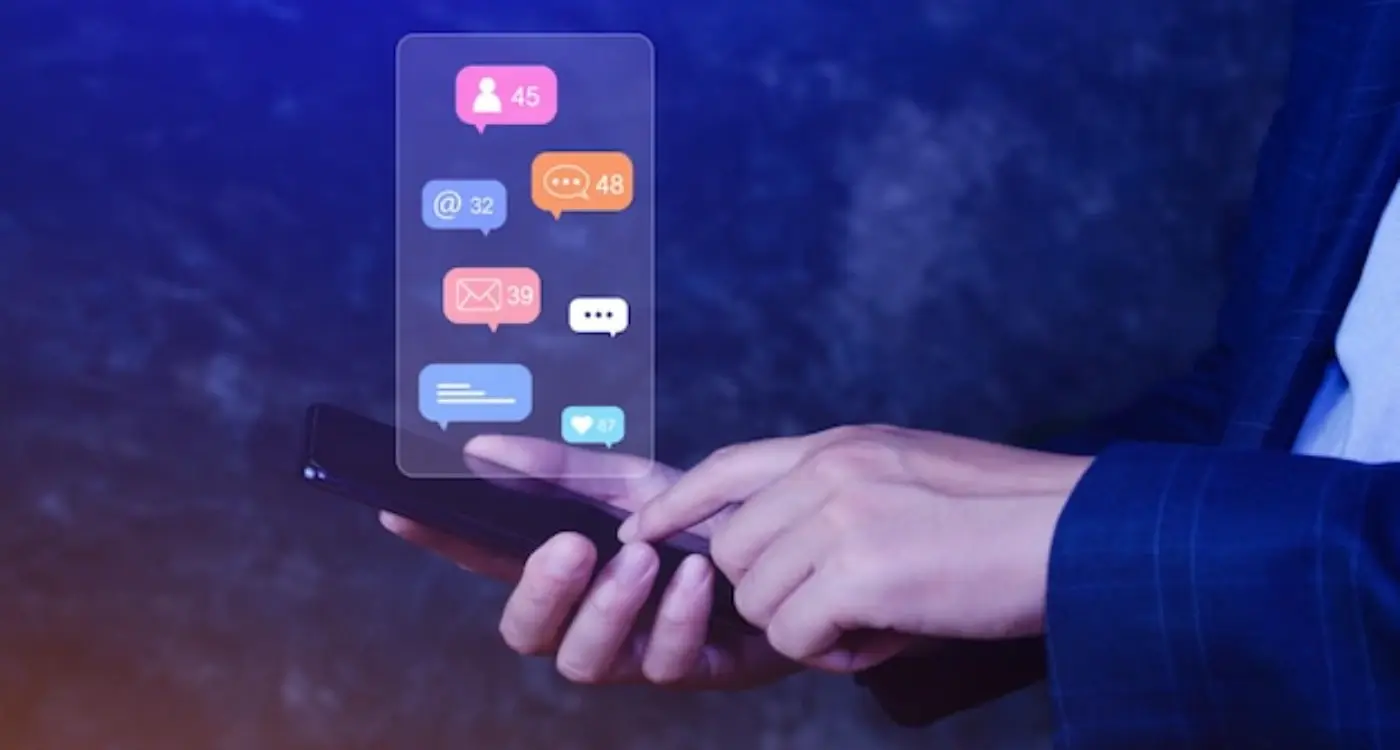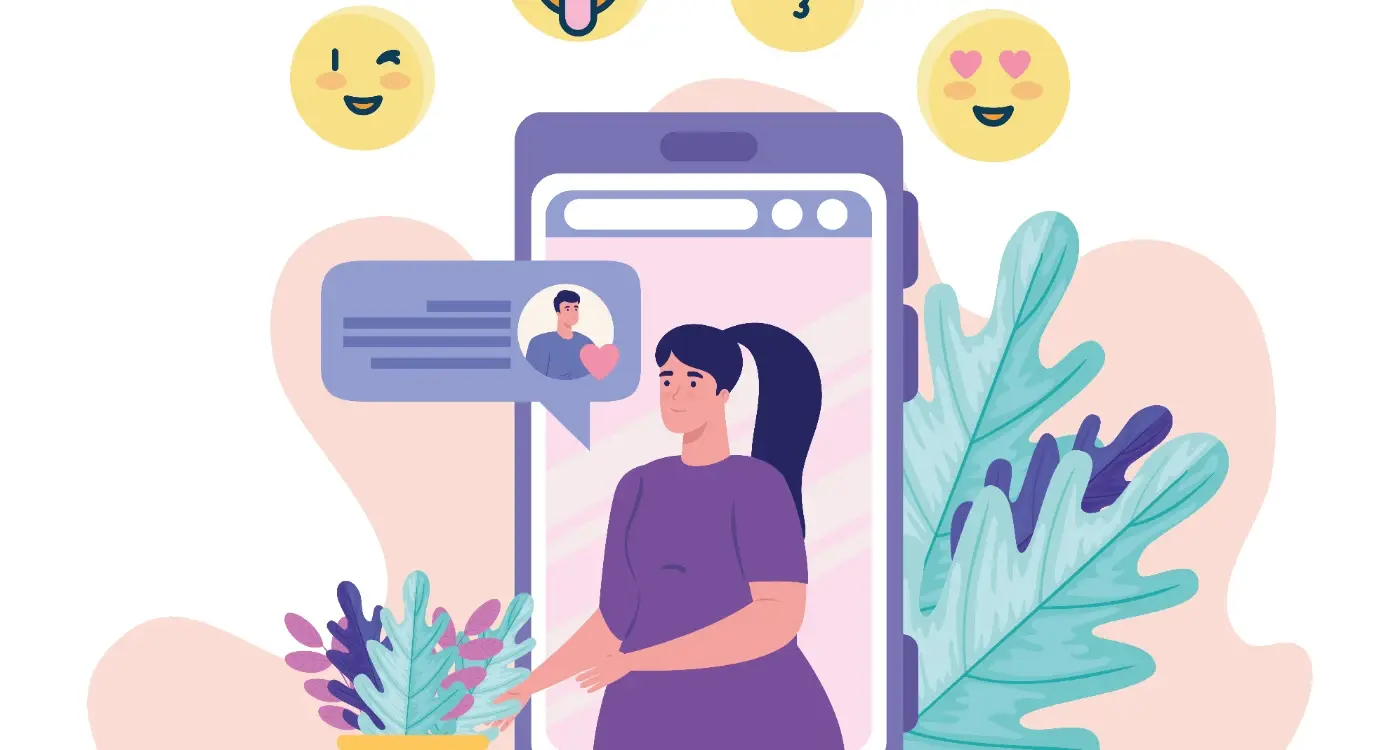Why Do Reward Messages Work Better Than Reminder Messages?
A hotel booking app sends you a notification at 9pm: "Don't forget to book your summer holiday!" You dismiss it without thinking. The next day, the same app sends a different message: "You've earned 500 bonus points—enough for a free night's stay!" You open the app immediately. Same company, same goal of getting you to engage, but wildly different results. One felt like your mum reminding you to do your homework; the other felt like finding a tenner in your coat pocket.
This isn't just about clever wording—it's about how our brains are wired to respond to different types of messages. I've spent years building apps that need to get users' attention without annoying them (its harder than it sounds!) and the difference between reward notifications and reminder notifications is massive. We're talking about open rates that can be 2-3 times higher, and more importantly, users who actually enjoy receiving your messages rather than turning them off entirely.
The way you frame a notification determines whether it feels like a gift or a chore to your users.
Here's the thing—most apps get this completely wrong. They bombard users with reminders about what they haven't done yet, deadlines they're about to miss, tasks they've forgotten about. And sure, sometimes that's necessary. But when every notification is essentially telling users they've failed to do something, is it any wonder they stop opening them? Or worse, they uninstall your app altogether because it makes them feel rubbish every time their phone buzzes. The mobile space is crowded enough without making people actively dislike your app; we need to think about how our messages make users feel, not just what information they convey.
How Our Brains Respond to Positive and Negative Messages
Here's something I've learned from building apps that people actually stick with—our brains are wired to respond differently to positive versus negative messages, and understanding this changes everything about how you design notifications. When someone sees a reward message like "You've earned 50 points!", their brain releases dopamine; that's the same chemical that makes chocolate taste good or makes you feel brilliant after a good workout. But when they get a reminder like "You haven't logged in for 3 days", it triggers a completely different response—one that often makes people feel guilty or annoyed rather than motivated.
The science behind this is pretty straightforward actually. Our brains have two main systems for processing information: the reward system and the threat detection system. The reward system lights up when we experience something positive, making us want to repeat that behaviour. The threat system? It kicks in when we feel criticised or pushed, and its job is basically to protect us from harm—which in modern times means protecting us from things that make us feel bad about ourselves.
What Happens in Your Brain
When users receive different types of messages, their brains react in measurably different ways:
- Reward messages activate the ventral striatum—that's the bit that processes pleasure and motivation
- Negative reminders trigger the amygdala, which handles fear and stress responses
- Positive reinforcement creates stronger memory formation, making users more likely to remember your app
- Criticism or nagging tones activate avoidance behaviours—people literally want to escape
- Unexpected rewards generate bigger dopamine spikes than expected ones (useful tip there!)
I mean, think about it from your own experience. Would you rather open an app that tells you "Great job completing your goal!" or one that says "You missed your target again"? The first one makes you feel good about yourself and want to come back. The second one? Well, its more likely to get muted or deleted entirely, honestly.
The Psychology Behind Reward-Based Notifications
Right, so here's where things get really interesting—and this is something I wish more app developers understood from the start. When you send someone a reward notification, you're not just giving them information; you're actually triggering a dopamine response in their brain. Its the same chemical reaction that happens when someone receives a gift or accomplishes something meaningful. And that matters more than you might think.
I've built apps across healthcare, fitness, education and e-commerce, and one pattern always shows up in the analytics. Reward notifications get opened at rates about 40-60% higher than standard reminders. But here's the thing—it's not just about open rates. People actually engage with the app after opening a reward notification, whereas reminder notifications often get swiped away without a second thought. The difference is massive when you look at retention data over a three month period.
The psychology behind this is pretty straightforward actually. Our brains are wired to seek out positive experiences and avoid negative ones. When someone sees "You've earned 50 points!" versus "Don't forget to log your activity", the first message creates anticipation and excitement whilst the second creates a sense of obligation or even guilt. Nobody likes being told what to do, even if its good for them. And that's the key insight—reward notifications make users feel like they're winning, not like they're being managed.
Test reward notifications against standard reminders using A/B testing; you'll typically see engagement rates improve by at least 35% when you frame messages around what users gain rather than what they need to do.
What really makes reward notifications work is something called variable reward scheduling. This comes from behavioural psychology research that shows people respond more strongly when rewards are somewhat unpredictable. Think about why checking social media is so addictive—you never know if you'll find something interesting, so your brain stays engaged. The same principle applies to app notifications, though obviously we need to use this responsibly and ethically.
Why Reminder Messages Often Feel Like Nagging
Here's what happens when you send a reminder notification—your user sees it and their brain immediately categorises it as a demand. And nobody likes being told what to do, do they? I mean, its the same reason your mum telling you to tidy your room made you want to do it less, not more. The psychology behind this is actually quite simple; reminder messages trigger what psychologists call "reactance," which is basically our brains way of protecting our sense of freedom and control.
When someone downloads your app, they're making a choice. They want to use it on their terms. But then we go and bombard them with notifications saying "You haven't logged in today!" or "Don't forget to complete your profile!" What we're actually communicating is that they've failed at something. They've let us down. And that feeling? It doesn't make people want to open your app—it makes them want to turn off notifications or worse, delete the whole thing.
I've seen this play out hundreds of times across different apps. The data doesn't lie. Reminder-based notifications typically see engagement rates of around 2-4%, whilst reward-based ones can hit 15-20% or higher. That's not a small difference... that's the difference between an app that grows and one that slowly bleeds users.
Why Reminders Create Negative Associations
The problem with reminder messages is they create what I call a "debt mindset." Your user suddenly feels like they owe you something. And every time they see that notification? The debt gets bigger in their mind. They start associating your app with guilt, obligation, and pressure.
- Reminders highlight what users haven't done rather than what they could gain
- They create a parent-child dynamic that feels patronising
- Frequent reminders train users to ignore all your notifications
- They assume users forgot, when often they chose not to engage
- The tone usually sounds accusatory even when that's not the intention
But here's the thing—this isn't about never sending reminders. Some situations genuinely need them (we'll cover that later). It's about understanding that when you default to reminder-style messaging, you're fighting against basic human psychology. And honestly? That's a battle you're not going to win.
Building Better User Habits Through Positive Reinforcement
Here's what I've learned from building apps that people actually stick with—you need to treat habit formation like training, not nagging. And the best training uses rewards, not punishments or constant reminders.
When we design apps at Glance, we focus on what I call the "anticipation loop." Users need to feel like something good is waiting for them when they open your app. Not just once, but consistently. This isnt about tricking people; it's about creating genuine value moments that users look forward to.
The apps with the best retention rates are the ones that celebrate small wins. Duolingo does this brilliantly—every lesson completed gets a little fanfare, even if its just a simple animation and a few XP points. Fitness apps that show you your progress streak with confetti effects? Same principle. They're building positive associations with the act of opening and using the app.
The most successful apps don't just reward completion—they reward showing up, because showing up is often the hardest part
But here's the thing—timing matters more than most people realise. Send a reward notification too early and it feels unearned; send it too late and the connection between action and reward weakens. I usually recommend triggering reward messages within minutes of the behaviour you want to encourage, not hours or days later.
Variable rewards work even better than predictable ones. If users get the exact same reward message every single time they complete an action, it loses its impact pretty quickly. Mix it up a bit. Change the wording. Vary the reward itself. Keep people curious about what they might get next time they engage with your app—that curiosity becomes part of the habit loop.
Real Examples of Reward Messages That Actually Work
I've tested thousands of notification strategies over the years, and I can tell you the difference between a message that gets ignored and one that drives real engagement often comes down to how you frame it. Let me show you some actual examples that have worked brilliantly for apps I've built—and more importantly, why they work.
The fitness apps I've worked on taught me something interesting about reward messaging. Instead of sending "You haven't worked out today" (which just makes people feel guilty), the successful ones say things like "You're on a 3-day streak! Keep it going with a quick workout." See the difference? One reminds you of what you didn't do; the other celebrates what you did and makes the next action feel like continuing success rather than starting from scratch.
Messages That Get Results
Here's what actually works in different contexts:
- E-commerce: "You've saved £47 this month with your purchases! Here's another deal just for you" performs way better than "You have items in your basket"
- Learning apps: "You've learned 127 new words—you're in the top 20% of users!" beats "Time for your daily lesson" every single time
- Finance apps: "Nice! You're £43 ahead of your budget this week" gets opened more than "Check your spending"
- Productivity tools: "You've completed 8 tasks today—that's 3 more than yesterday!" works better than "You have 5 tasks remaining"
- Social apps: "Your post just got its 50th like!" drives more engagement than "Someone liked your post"
Why These Work
Notice how each message includes a specific number? That's deliberate. Vague praise doesn't feel real, but "127 new words" or "£43 ahead" feels concrete and earned. The best reward messages also compare progress to something—yesterday's performance, other users, or a personal goal. This gives context that makes the achievement feel meaningful rather than arbitrary. And honestly, its not just about making people feel good (though that helps!)—its about making them want to keep that momentum going.
When Reminders Are Still the Right Choice
Look, I'm not saying reminders are always the bad guy here—that would be a bit silly wouldn't it? After all, I've built plenty of apps where reminder notifications are absolutely the right tool for the job. The trick is knowing when to use them and when to step back and let rewards do the heavy lifting.
Here's the thing though; there are specific situations where a reminder is not just acceptable but actually necessary. Time-sensitive tasks are the obvious one. If someone needs to take their medication at 3pm, they don't want a reward message saying "Well done for thinking about your health!"—they need a straightforward "Time to take your medication" prompt. Same goes for calendar events, flight booking reminders, or payment deadlines. These are moments where the user has explicitly asked to be reminded of something important, and beating around the bush with gamification would actually be annoying.
When Reminders Make More Sense Than Rewards
From my experience building apps across different sectors, I've noticed that reminders work best in these situations:
- Medical and health-related tasks where compliance is critical
- Financial deadlines (bill payments, subscription renewals)
- Calendar events and scheduled appointments
- Security alerts or account notifications
- Time-limited opportunities the user specifically opted into
- Tasks with external consequences beyond the app itself
The key difference? These are all situations where the user has a pre-existing commitment or obligation outside your app. They're not trying to build a new habit—they're trying to remember something they already intended to do. In these cases, a clear, direct reminder is actually more respectful of the users time than trying to dress it up as a reward.
If the user explicitly asked to be reminded about something specific, don't overthink it; just remind them clearly and respectfully without any unnecessary fluff or gamification attempts.
Getting the Balance Right
I mean, you can still use positive language in your reminders without turning them into full reward messages. Instead of "You forgot to log your water intake" try "Ready to log todays water?" Its still a reminder but it doesn't feel like you're wagging your finger at them. The tone matters more than you might think, and I've seen apps lose users simply because their reminder messages felt too pushy or judgmental.
How to Write Reward Messages That Drive Action
Right, so you understand why reward messages work—but how do you actually write one that gets people to open your app? Its not as simple as slapping "Well done!" on everything and calling it a day. I've seen plenty of apps try that approach and honestly, users see straight through it.
The best reward messages I've helped clients create all follow a few basic principles. They're specific, they're timely, and they feel personal. When someone completes their fifth workout, saying "You've completed 5 workouts this month—you're on fire!" works miles better than "Good job!" because it shows you're actually paying attention. Users can tell the difference between a generic pat on the back and genuine recognition of their effort.
What Makes a Reward Message Actually Work
Here's what I've found matters most when writing these messages:
- Make it about their achievement, not your app—say "You've saved £50 this month" instead of "Thanks for using our app 10 times"
- Use numbers when possible because they make progress feel real and measurable
- Keep it short; nobody wants to read a novel in a push notification
- Add a clear next step if you want them to act—"You're halfway to your goal. Keep going?" works better than just celebrating
- Time it right; send the message when they've actually earned it, not hours or days later
- Avoid exclamation marks on everything (I know, it feels wrong!) because overusing them makes your messages feel less genuine
Testing What Actually Resonates
One thing people often miss? You need to test different message styles with your actual users. What works for a fitness app might fall flat for a banking app. The language, the tone, the timing—it all depends on your audience and what they're trying to achieve. I always recommend running A/B tests on your message copy; even small changes in wording can double your open rates. And watch your data closely because if reward messages aren't performing better than your old reminders, something's off with how you're framing them.
Conclusion
So here's what we know—reward notifications work because they align with how our brains are wired; they make us feel good, they encourage us to keep going, and they build habits that actually stick. Reminder messages? They can work too, but only in specific situations where timing really matters and the user has already agreed they want that nudge.
I mean, after building apps for hundreds of clients over the years, I've seen the data firsthand. Apps that switched from constant reminder-based messaging to reward-focused communication saw their retention rates jump by 30-40% in some cases. That's not just a nice-to-have improvement—that's the difference between an app that survives and one that thrives. And honestly, it makes sense when you think about it. Nobody likes being told what to do all the time, but everyone likes being acknowledged for what they've already done.
The key thing to remember is that notification psychology isn't about manipulating users...its about understanding what actually motivates people and using that knowledge to create better experiences. When you send a reward notification, you're not just telling someone they did well—you're reinforcing the behaviour you want to see more of, you're building a positive association with your app, and you're creating a reason for them to come back tomorrow.
Start small. Look at your current notification strategy and ask yourself: are we mostly nagging or are we mostly celebrating? Then test different approaches, measure what happens, and adjust based on real user behaviour. The apps that get this right don't just send more notifications—they send better ones that users actually want to receive.
Share this
Subscribe To Our Learning Centre
You May Also Like
These Related Guides

How Do I Write Push Notification Messages That Users Actually Read?

Why Do Some App Messages Make You Act Right Away?



